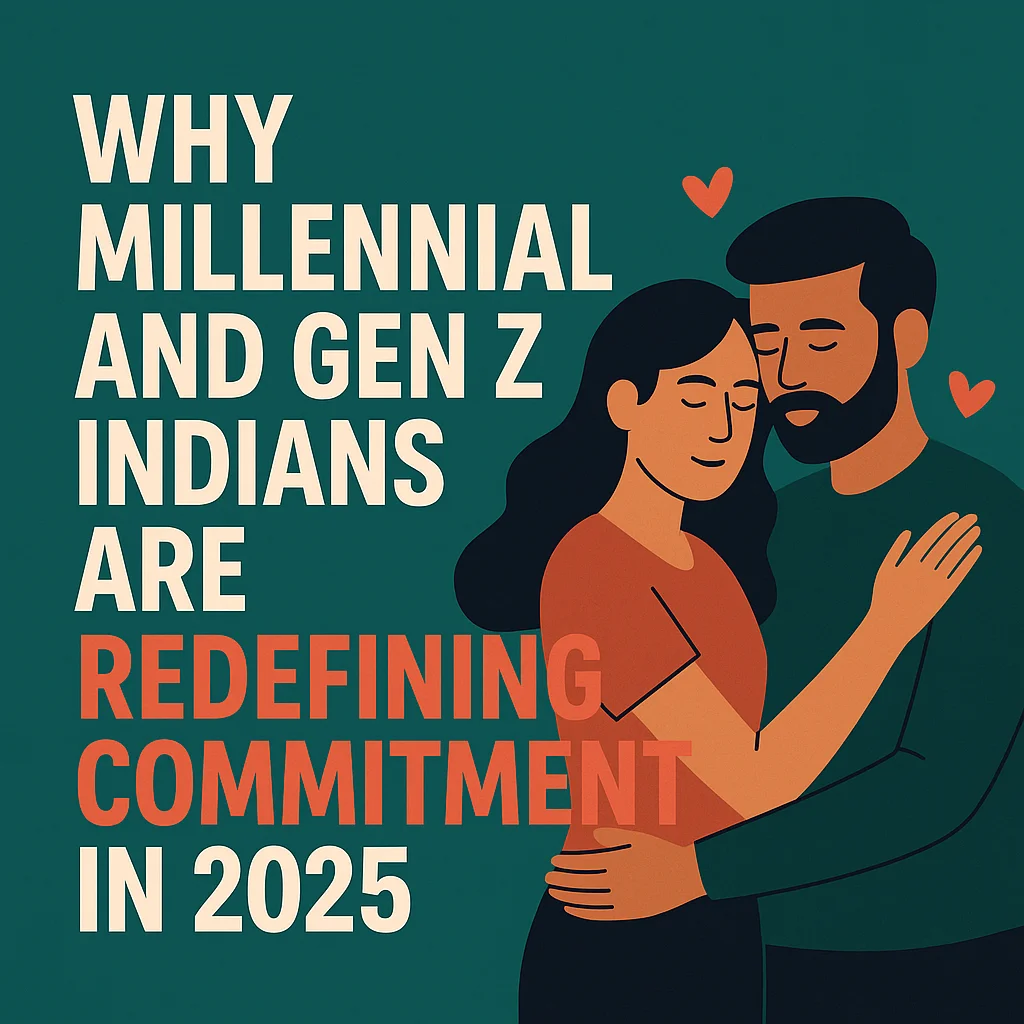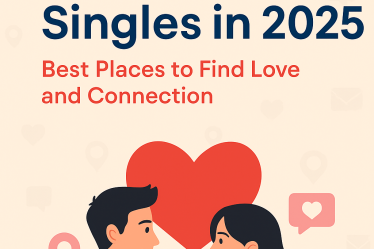
Introduction: Love, Rewritten for a New India
In 2025, the rules of love in India are being rewritten by its youngest romantics—Millennials and Gen Z. Long gone are the rigid expectations of arranged marriages and duty-bound unions. Today’s young Indians are redefining what commitment means—on their terms.
On Mate4all, we see it firsthand every day: educated, emotionally aware users searching not just for love, but for authentic connection. So, what’s behind this seismic shift? From tech-driven dating to cultural evolution, here’s how India’s youth are reshaping commitment for the modern age.
1. Goodbye Traditions: The Decline of Arranged Marriages
For decades, arranged marriages were the norm in Indian households. But times have changed.
- Urban youth are increasingly choosing love over arrangement.
- Pew Research shows a sharp drop in arranged marriages in cities like Mumbai, Delhi, and Bangalore.
- Financial independence and access to higher education have given Indian Millennials and Gen Z more autonomy.
Instead of family-set unions, they seek emotional compatibility, shared values, and mutual respect.
Mate4all Insight: Profiles with preferences for “love marriage only” have risen by 47% in the past two years.
2. Digital Dating: Serious Love, One Swipe at a Time
Online dating isn’t just for casual hookups anymore.
Today, apps like Mate4all empower users to express what they’re looking for—from friendship to forever.
- Filters like “Looking for a Long-Term Relationship” or “Marriage-Minded” are more commonly used than ever.
- Gen Z especially is embracing intentional dating—where clarity beats confusion.
- According to a 2024 Bumble India survey, 78% of Gen Z Indians want their next relationship to be long-term.
Online dating is no longer taboo—it’s the new normal.
3. Career First, Marriage Later: Prioritizing Personal Growth
Marriage is no longer the milestone it once was—at least not in your 20s.
- Millennials and Gen Z Indians are delaying marriage to focus on personal development, careers, travel, and mental health.
- The average age of marriage in urban India has shifted from 24 to 29 in the past decade.
- Concepts like therapy, self-awareness, and emotional maturity now influence dating choices.
Young Indians want to grow with someone, not for someone.
4. New-Age Commitments: Cohabiting, Open Relationships & More
Not all commitment looks like a wedding.
- Live-in relationships are becoming more accepted, especially in metros and among dual-income couples.
- Legal recognition and societal tolerance have increased.
- Some Gen Z Indians are exploring open relationships or non-monogamous models—focusing on trust and communication over conformity.
These aren’t trends—they’re testaments to a generation asking what commitment really means.
5. Influencers, Instagram & Relationship Goals
Social media has become the third wheel in many relationships—for better or worse.
- Indian influencers now shape dating ideals, from #CoupleGoals to cohabiting content.
- Platforms like Instagram and YouTube impact how people express, validate, and question their love lives.
- There’s a rise in “aesthetic relationships”—where curated photos sometimes matter more than connection.
But many Millennials and Gen Z are aware of the pressure and seek authenticity offline—on platforms like Mate4all.
6. Straddling Cultures: Modern Love Meets Indian Values
Young Indians aren’t rejecting tradition—they’re reinterpreting it.
- While they want freedom in love, many still value family involvement, cultural rituals, and emotional roots.
- Inter-caste and interfaith couples are navigating both love and legacy.
- The generational gap is real—but so is the effort to bridge it.
This blend of modern love with cultural respect is uniquely Indian—and deeply Millennial and Gen Z.
7. What Commitment Means in 2025 (Hint: It’s Not Just Marriage)
In 2025, commitment is no longer defined by legal paperwork—it’s about emotional partnership.
- For many young Indians, it means consistent effort, mutual growth, shared values, and open communication.
- Terms like “situationship” and “soft commitment” are common—but not to be confused with carelessness.
- The new mantra: If it feels right, it’s right—even if it doesn’t look traditional.
Whether it’s marriage, live-in, or lifelong dating—commitment is about connection, not convention.
Conclusion: The Indian Love Story Is Evolving
Millennials and Gen Z are not anti-love—they’re pro-choice, pro-emotional clarity, and pro-authenticity. As Indian society evolves, so does the meaning of commitment.
On Mate4all, we champion this shift by helping people find real connections based on compatibility, shared values, and future goals—not just checkboxes.
Whether you’re looking for love, something serious, or just exploring your options—Mate4all is where modern India connects.
FAQs: Redefining Commitment in India – 2025
Q1. What is the modern definition of commitment for Indian Millennials and Gen Z?
Commitment today means emotional availability, mutual respect, shared goals, and growth—regardless of whether the relationship leads to marriage.
Q2. Are arranged marriages still common in India?
Yes, but they’re declining in urban and educated circles. Young Indians now prefer compatibility over tradition.
Q3. Is online dating popular in India for serious relationships?
Absolutely. Platforms like Mate4all are seeing a rise in users looking for long-term or marriage-minded matches.
Q4. Are live-in relationships legally accepted in India?
Yes. The Supreme Court has recognized the legality of live-in relationships, especially between consenting adults.
5. Why are Millennials and Gen Z Indians delaying marriage?
They prioritise personal growth, career development, and emotional maturity before committing to a lifelong partner.



